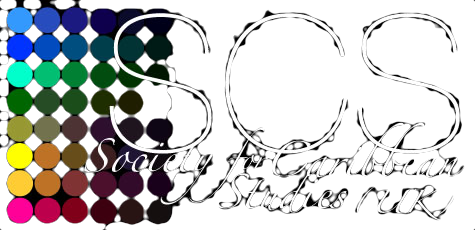
Kramer-Taylor, Elanor
PhD Candidate in History @ Kings College London
Bio
I’m a third year PhD history student at King’s College London. My research explores the relationship between the Caribbean diaspora living in post-1945 Britain and independence movements across the Anglophone Caribbean, spanning from the labour movements of the late 1940s to Black Power in the mid-1970s. I’m particularly focused on figures and organisations on the far-left of Caribbean politics who, though located in Britain, perpetuated and articulated radical, socialist demands for Caribbean independence. I ask: can we view West Indian migrants in Britain part of a broader, diasporic, pan-Caribbean nationalist movement? Can Caribbean decolonisation be expanded to encompass the region’s diaspora living throughout the Atlantic World? Overall, my research aims to make an original argument about the centrality of Caribbean decolonisation to the politics of West Indians in post-war Britain, while also exploring conceptual approaches to explaining the deep political connections between the Caribbean and its diaspora during the decolonisation period.
Geographical location : London, UK
Research Area and Interest : relationship between the Caribbean diaspora living in post-1945 Britain and independence movements across the Anglophone Caribbean, spanning from the labour movements of the late 1940s to Black Power in the mid-1970s
Social Media
Past Conference(s)
Past Panel(s)
Past presentation(s)
- Summary: In 1952, the Caribbean Labour Congress (CLC), a regional labour organisation established in the British West Indies in 1945, fell apart. The CLC had in many ways represented the peak of a democratic, socialist, regional independence movement in the Anglophone Caribbean.Yet, by the early 1950s, Cold War splits in the global labour movement and the growth of British anti-communist tactics resulted in the oppression of the CLC’s far-left members. And, as O. Nigel Bolland has stated, caused ‘irreversible division within the labour movement in the British Caribbean...’ But while the CLC disbanded and regional leftism in the Caribbean declined, in London, not all hope was lost. In 1948, a London Branch of the CLC was established by West Indians in Britain. With its location in the imperial metropole partly sheltering it from British McCarthyism, this group provided sustained support for the twin movements of self-government and labour rights in the Caribbean, lobbying the British press, politicians and public on the plight of Caribbean workers. And attempting to unite West Indians in Britain around regional self-government. The CLC London Branch thus provided an alternative platform to articulate the far-left, nationalist demands being purged in the West Indies itself. As Gerald Horne has noted, London became ‘the CLC left stronghold’. Using the CLC London Branch, this paper will explore how West Indians in Britain attempted to utilise the relative freedom of the imperial metropole to assert the progressive demands of the Caribbean Left that, due to global Cold War politics, were increasingly under threat.
- Event:
